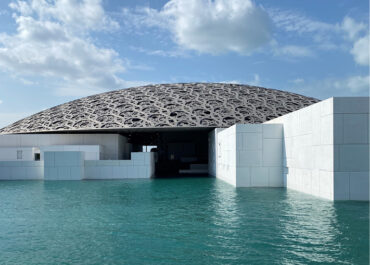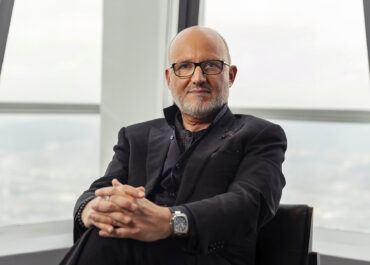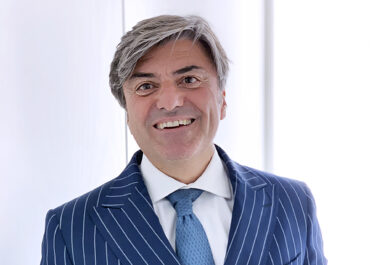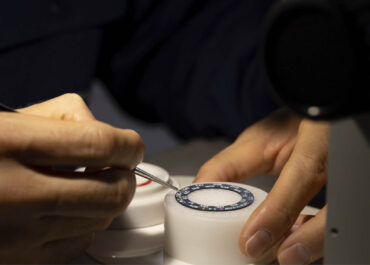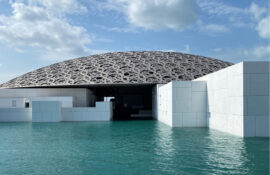At Il Carpaccio, the Michelin-starred Italian restaurant at Le Royal Monceau – Raffles Paris, Chefs Alessandra Del Favero and Oliver Piras bring instinctive, contemporary flair to authentic Italian cuisine.
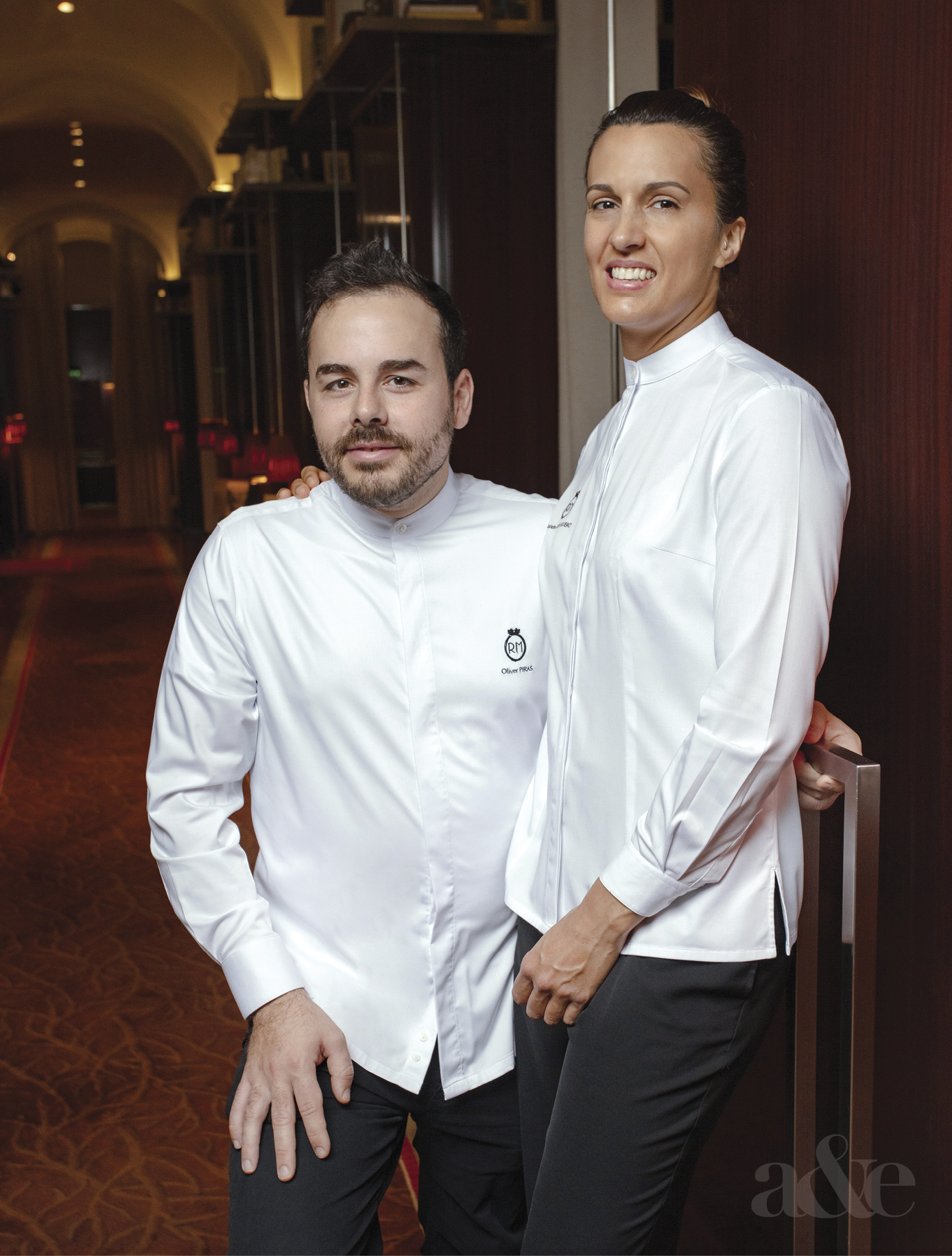
Partners in life and in the kitchen, they have created one of Paris’s most acclaimed dining experiences, earning a Michelin star within their first year in 2022.
The pair first met in 2012 at Da Vittorio, the legendary three-starred restaurant near Bergamo, where they trained under the Cerea family. Alessandra, born in the Dolomites and raised in her family’s hotel, combines a deep understanding of hospitality with training at the ALMA culinary school. Meanwhile, Oliver, originally from Sardinia, built his career across Europe with chefs including René Redzepi at Noma and the Roca brothers at El Celler de Can Roca, before returning to Italy to refine his craft.
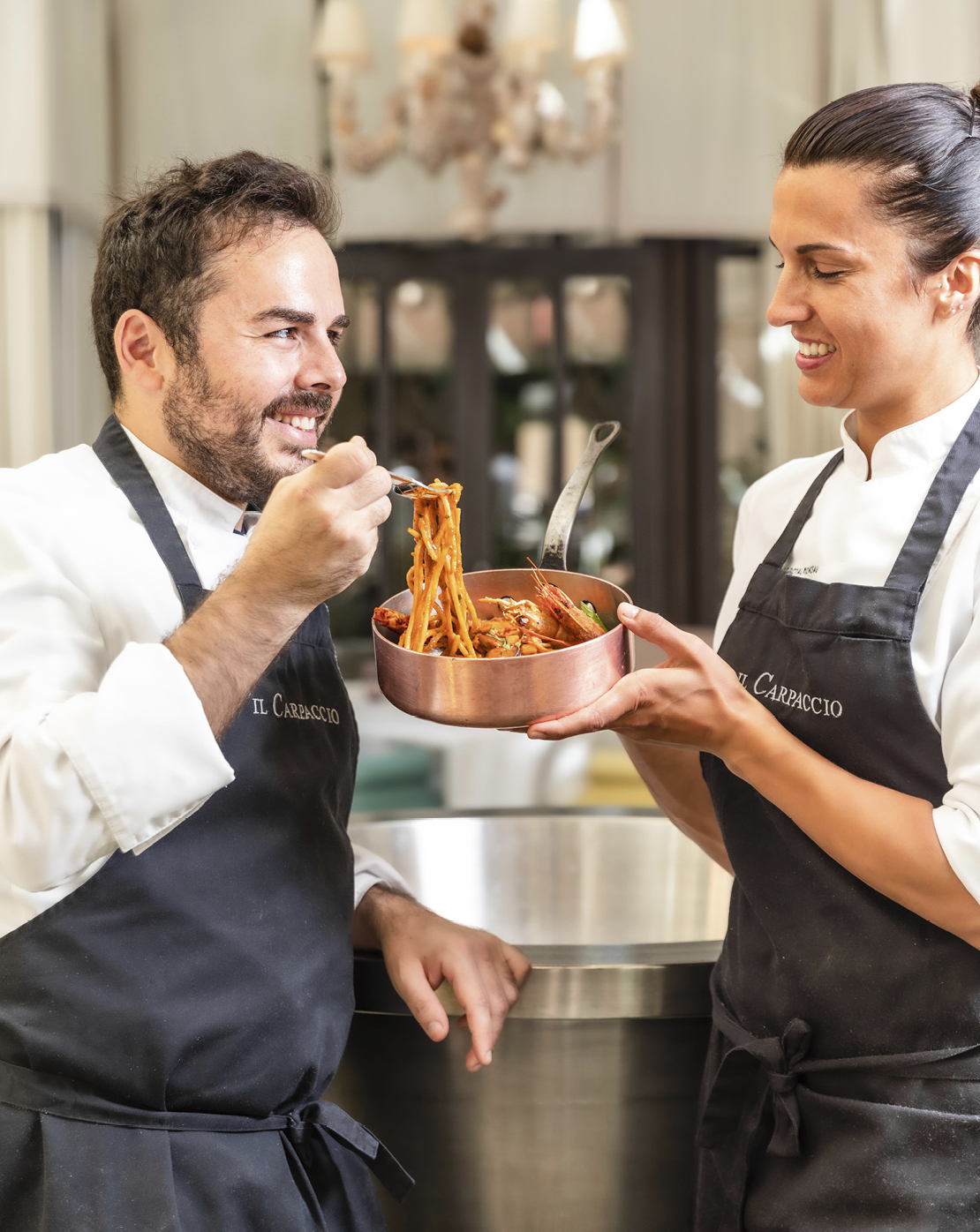
In 2015, they opened Aga in Alessandra’s family hotel, earning a Michelin star with just five tables. Their move to Paris marked the beginning of a new chapter in partnership with Da Vittorio, showcasing classic Italian recipes, seasonal tasting menus, and a style defined by precision, warmth, and creativity. For them, dining is not only about food, but about recreating the sense of welcome found at home. Here we discuss their careers and what is next for Il Carpaccio.
You first met at Da Vittorio. How did that experience shape your culinary philosophy?
Da Vittorio was not just a kitchen; it was a true school of life. Within those walls, we discovered that cuisine must be disciplined yet soulful, anchored in tradition yet always evolving. What stayed with us is the conviction that a dish should embody simplicity without ever being ordinary, where every ingredient tells a story and every detail carries meaning. And beyond technique, we also learned something fundamental: that even in a three-Michelin-starred restaurant, cuisine must remain warm and convivial, a reflection of family spirit. Working with the Cerea family showed us that excellence and generosity can go hand in hand, a lesson we carry with us every day.
Alessandra, how did growing up in the Dolomites influence your approach to ingredients and hospitality?
I grew up in the Dolomites, in a family that ran a hotel, and that world shaped me profoundly. The mountains taught me respect for nature and its rhythms: winters were long and harsh, summers generous but brief. Ingredients were always close at hand: mushrooms gathered in the forests, milk from the valleys, and vegetables from the gardens. Everything was seasonal, pure, and authentic. Hospitality, too, was simply part of daily life: welcoming guests with warmth and generosity came as naturally as breathing. From that upbringing, I carry with me the value of genuine hospitality, which I strive to bring even into the world of fine dining.
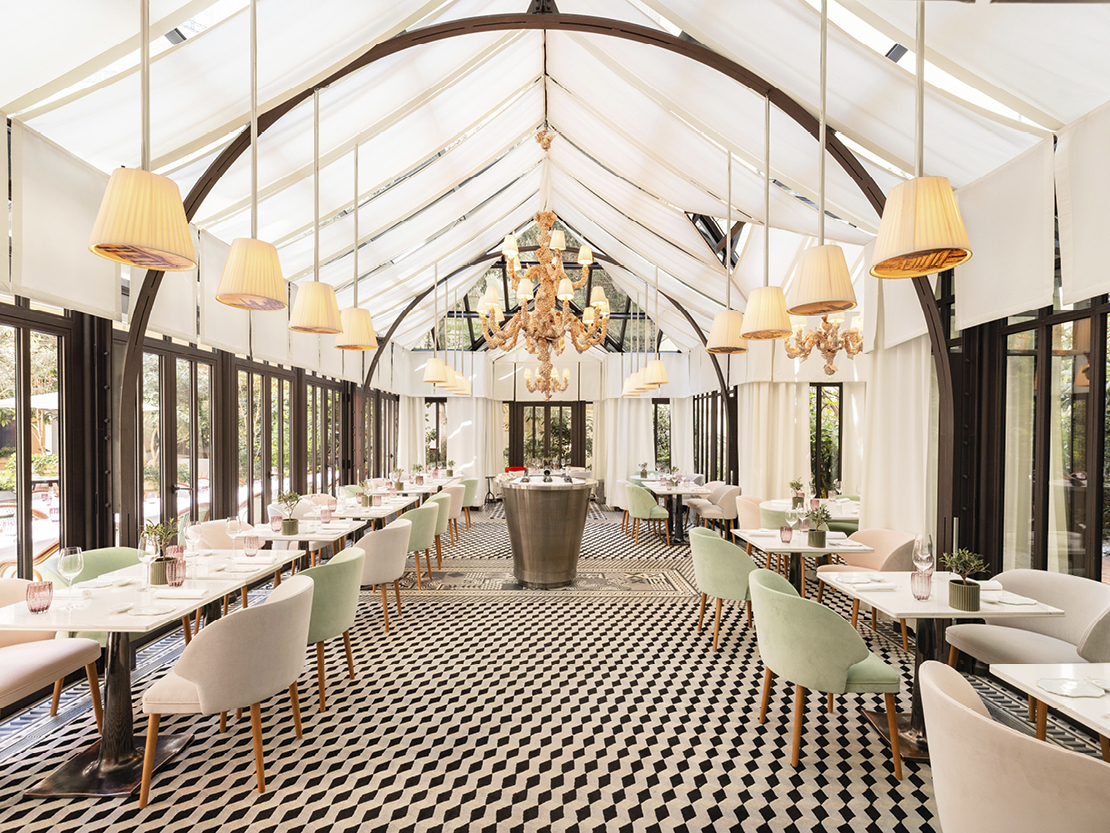
Oliver, Sardinia has such a distinct food culture. How does your heritage appear in your cooking today?
Sardinia is my identity. In my cooking, I often seek to bring back the flavours and aromas of my island: the salt of the sea carried by the wind, the perfume of wild herbs growing on rugged hills, and the humble ingredients that have always sustained its people. I don’t always recreate them literally, but I transform them, carrying their soul with me. In this way, the memory of Sardinia: its sea, its sun, its strength, lives on even here in Paris.
You trained under some of the world’s best chefs, from René Redzepi to the Roca brothers. Which lessons still guide you daily?
From kitchens such as Celler de Can Roca, Noma, and Joël Robuchon, we absorbed invaluable lessons: the discipline of extreme precision, the pursuit of purity, and a profound respect for authentic flavour. But above all, we learned that creativity must always have roots: it cannot exist randomly, it must grow from tradition, from memory, and from respect for ingredients.
What was it like to run Aga, your own restaurant in the Dolomites, and win a Michelin star so quickly?
Aga was our most important training ground. For the first time, we had total freedom, but with it came immense responsibility. Every decision was ours alone, from the ingredients to the atmosphere. Winning a Michelin star so quickly was both a surprise and a profound confirmation that the path we had chosen was the right one. It gave us courage, and the belief that our voice in cuisine could truly resonate.
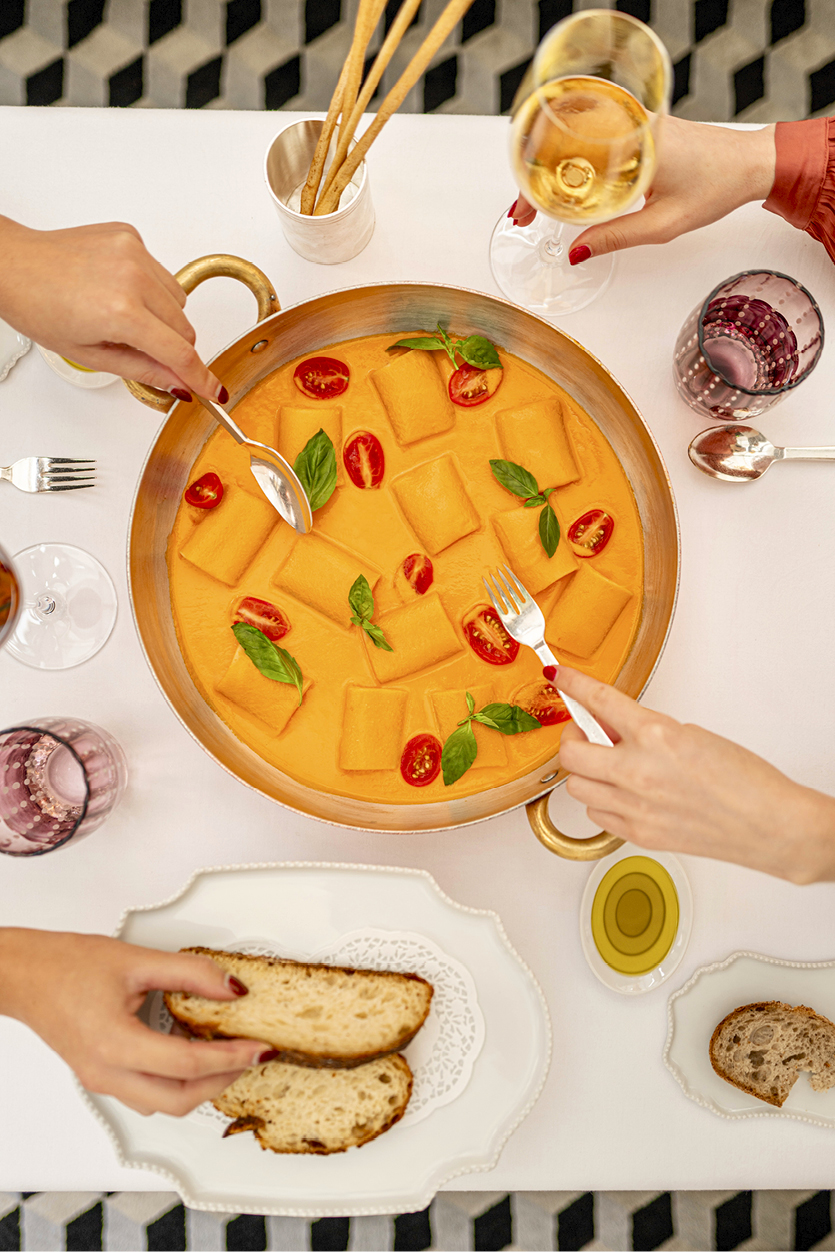
How do you balance working as both a couple and a chef duo in a Michelin-starred kitchen?
t’s not always easy, but it is the heart of our strength. We live and work together, and that bond of trust allows us to share every decision and responsibility. Over the years, we’ve found a natural harmony: Alessandra brings organisation and care for the team, while Oliver focuses on creation and flavour. It’s a partnership built not only on skills, but on love, and that makes our cuisine even more alive.
What drew you to Il Carpaccio and to Paris as a stage for your cuisine?
Paris was both a challenge and a dream. When we were offered Il Carpaccio at Le Royal Monceau, together with the Cerea family, we immediately felt it was the right opportunity. Il Carpaccio is not just a restaurant it is a historic place. Angelo Paracucchi first entrusted Alberico Penati to bring his vision here, just as the Cerea family entrusted us today. For me, this link is very personal: I worked with Penati in Brussels in 2007, and he often spoke about Il Carpaccio with such pride! So stepping into this kitchen years later feels like continuing a story that I had already been dreaming of for a long time. And Paris, a city that breathes gastronomy, is the perfect stage to carry this Italian legacy forward with our own voice.
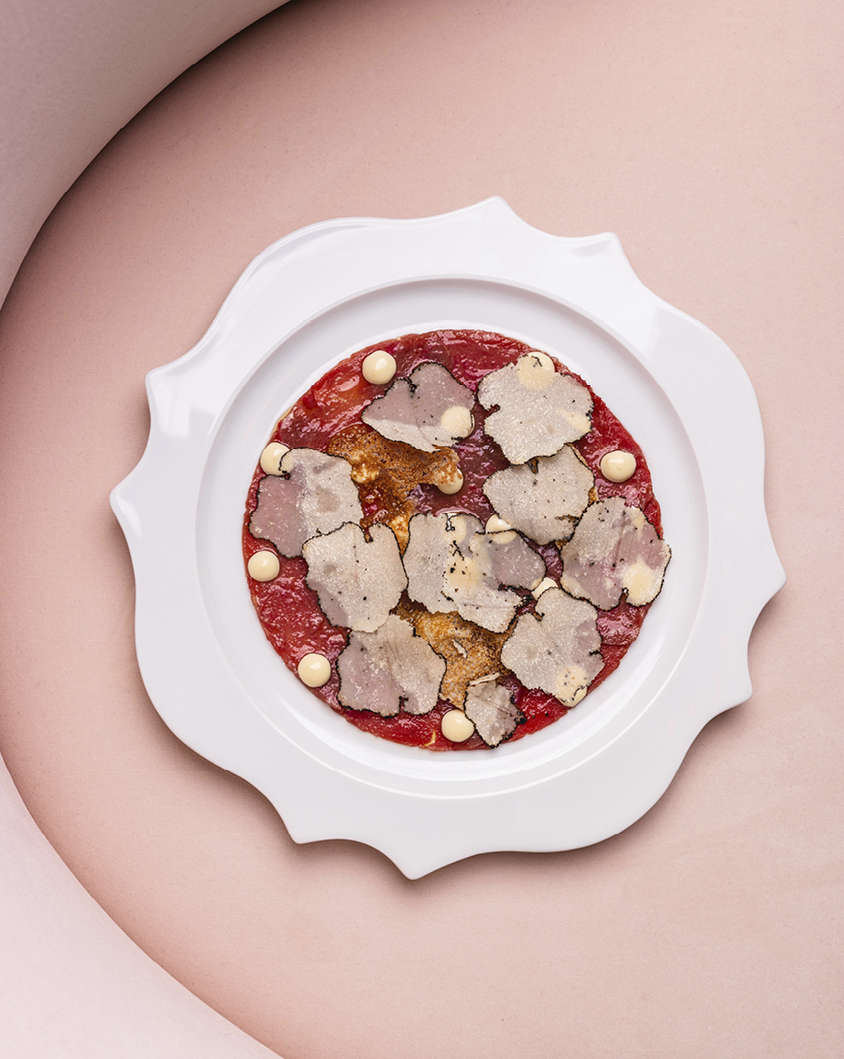
You often describe your style as “instinctive cuisine.” What does that mean in practice?
For us, ‘instinctive cuisine’ means allowing our feelings to guide us. It is not improvisation behind it lies technique, discipline, and years of experience. But instinct is what tells us when an ingredient feels right, when a dish needs to change, or when a small detail can make all the difference. It’s the invisible thread that connects our craft to emotion.
What is the creative process behind designing a tasting menu at Il Carpaccio?
Every tasting menu begins with the season: the ingredients are our first inspiration. From there, we compose a journey with rhythm and balance: moments that are fresh and delicate, followed by others that are deeper and more intense. Along the way, we enjoy revisiting Italian classics, lightening them, reinterpreting them, and adding a touch of surprise, but always remaining faithful to their essence.
Do you have a favourite ingredient that you always return to when designing new dishes?
There are ingredients we always return to. Olive oil and Parmesan are constant companions, timeless symbols of Italian cuisine. Then each of us adds something personal: for Oliver, it’s the flavours of Sardinia: the sea, the herbs, the intensity of the island; for Alessandra, it’s mushrooms and mountain herbs from the Dolomites. These are not just ingredients; they are memories, carrying the spirit of our homelands into every dish we create.
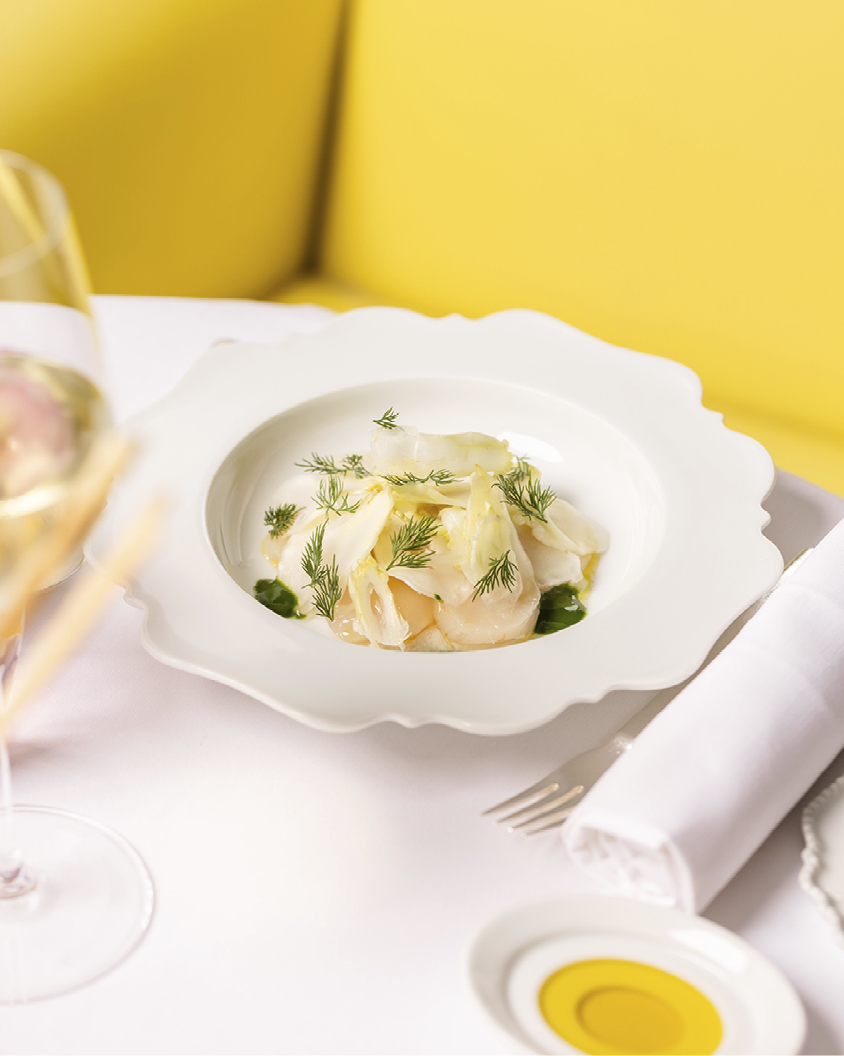
How do you decide when to use French produce versus Italian?
For us, it always begins with quality. If a French product is in season and exceptional, we are delighted to showcase it. But some ingredients can only be Italian; they carry a cultural weight, a flavour that defines the identity of the dish. The balance lies in letting the two countries meet on the plate, without ever losing the soul of Italian cuisine.
How do you adapt your menus to reflect the seasons while maintaining Italian authenticity in Paris?
We follow the rhythm of the seasons very closely; it is nature that tells us what to bring to the table. In Spring, freshness and lightness; in Autumn, depth and warmth. Yet whatever the season, every dish carries an unmistakable Italian soul: a pasta, a cheese, a condiment that ties it back to our roots. This way, the menu evolves with time, but our identity remains constant.
What did it feel like to earn a Michelin star at Il Carpaccio just months after arriving?
It was deeply emotional and completely unexpected. We never imagined the star would come so quickly. For us, it was not only a joy, but also a powerful confirmation that our cuisine could resonate in Paris, a city where the standards are so high and the competition so refined. At the same time, we see it as a recognition of a whole team: the dining-room staff who bring warmth to the service, the pastry team, the sommellerie, and the marketing team who help tell our story. A Michelin star is never the achievement of two people alone; it is the fruit of a family working together with the same passion. That is what gave us confidence and the feeling that we had truly found our place here.
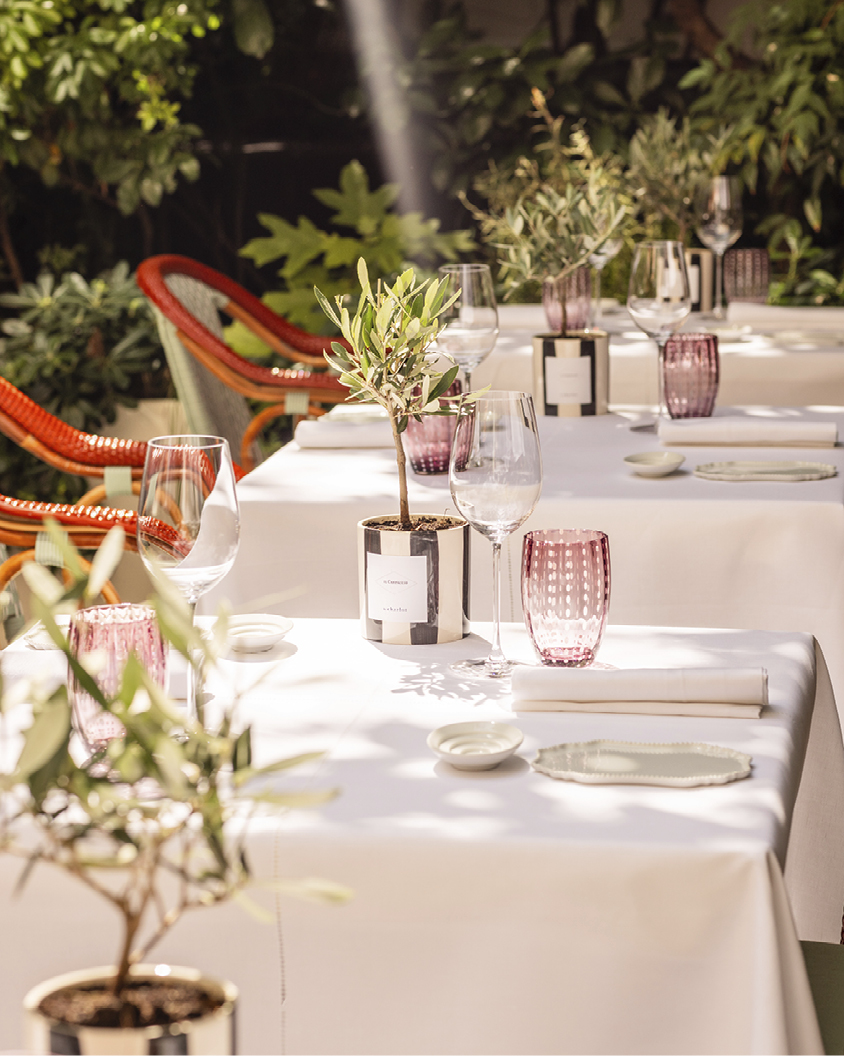
Awards aside, how do you personally define success in the kitchen?
For us, true success goes far beyond awards. It is seeing people happy at the table, when a guest tells us that a dish awakened a memory, or that they left with a new emotion. Success is when cuisine creates an experience that lingers in the heart, not only on the palate.
What do you think guests are looking for from a dining experience today?
Today, guests are seeking authenticity. It is no longer enough to impress with technique or plating; they want to understand the story behind a dish, to feel its soul. What they look for is something personal, sincere, and welcoming; an experience that speaks to them on a human level as much as a culinary one.
How do you ensure customers keep returning?
We strive to make every visit feel unique, never a repetition of the last. The menu evolves constantly with the seasons, and we pay close attention to our guests’ feedback. But beyond change, what matters most is consistency, that every time they return, they find the same care, passion, and authenticity. We also believe in creating a close link with our guests: Chef Oliver and the pastry team often step out for live cooking moments, which not only entertain but also create a direct, personal connection at the table. It is this blend of surprise, trust, and human warmth that makes people want to return.


